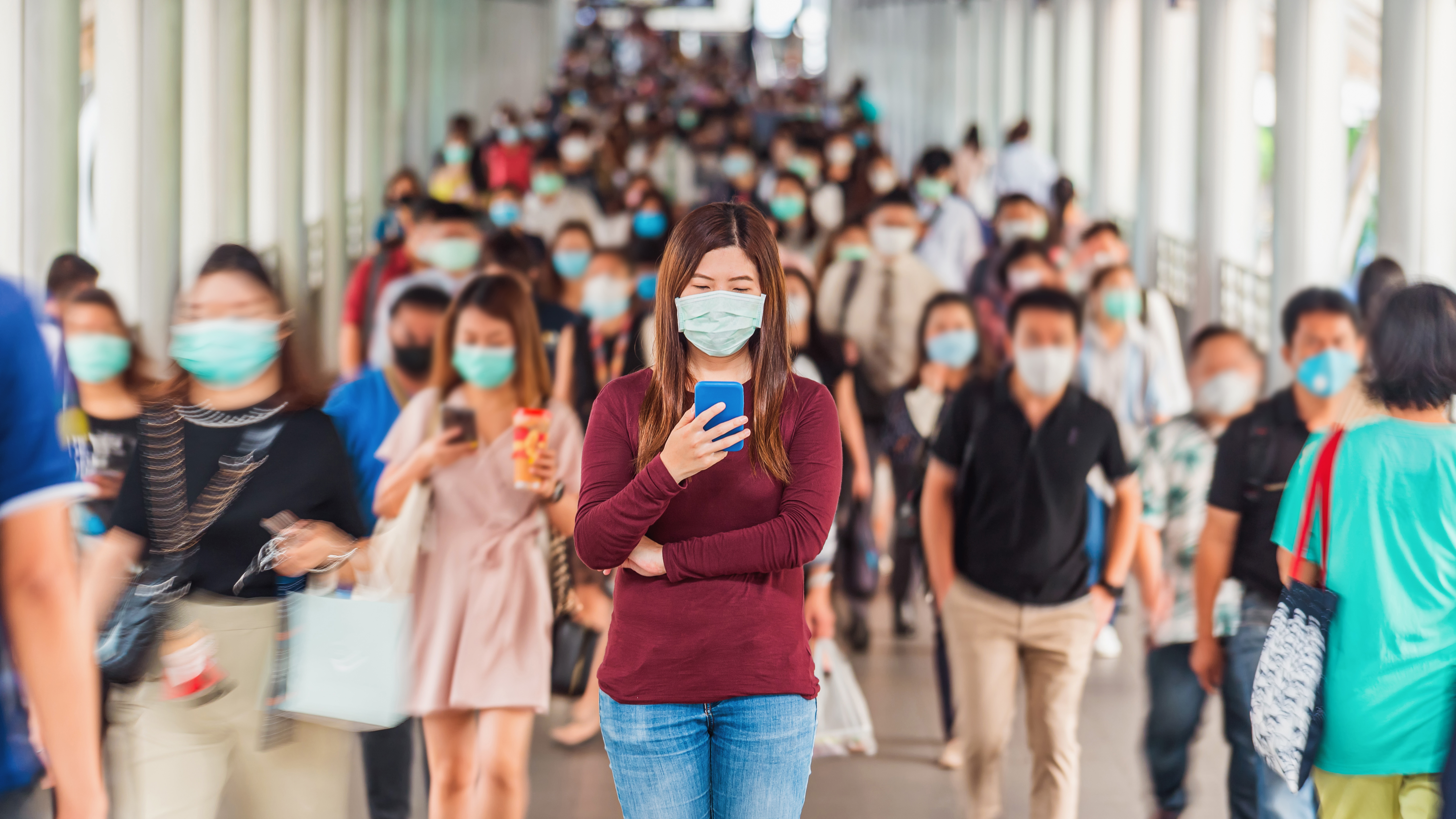Apple and Google plan to trace Covid-19 using your phone
The opt-in system is coming to iOS and Android devices

Normally bitter rivals, Apple and Google are now teaming up to create the Covid-19 contact tracing system that the world may need and staunch privacy advocates fear.
The companies' proposed solution works by tracking phones. Your smartphone will act as an anonymous identifying beacon, using Bluetooth along with the iOS and Android platforms to power this forward-thinking tracing system. As you come into contact with people, you'll exchange anonymous identifying keys, according to official documentation.

When a person tests positive for the novel coronavirus, they can log their test result into an app created by public health authorities (not necessarily an app by Apple and Google, mind). Even if it's days later, people they came into contact with will see an alert – but they will not get the name of the person who tested positive, for privacy reasons.
The idea here is that Apple and Google's mobile platforms will act as much-needed beacons, and while you won't be able to trace the origin of a possible coronavirus encounter, you'll have a notification informing you to get tested for the virus.
The contact tracing system should go live in 'the coming months' according to a joint statement from Apple and Google. In May, the two companies will release APIs to allow interoperability between Android and iOS devices to use apps released by public health authorities.

What about privacy?
While China and South Korea have used smartphone apps to help track Covid-19, proposals for equivalent methods in the US and UK have been treated skeptically. People are (rightly) concerned about how they'll be tracked and the implications of such a mass-monitoring system – like how it may be used during or after the coronavirus outbreak.
Apple and Google built some privacy safeguards into the system. It doesn't collect personally-identifiable information (PII) or user location data, and the list of people encountered won't leave anyone's device. If a user discloses they've tested positive for Covid-19 to a public health app linked to Google and Apple's system, the system needs the user's consent before alerting others they've been in contact with over the last 14 days.
Get daily insight, inspiration and deals in your inbox
Sign up for breaking news, reviews, opinion, top tech deals, and more.
That need for consent means folks might withhold their positive status and limit the system's accuracy. But governments will likely assure privacy to increase participation in systems like the one developed by Apple and Google: “In Europe and the US we’re not going to do this in a way that has been done in China,” University of Oxford professor Michael Parker, who is working on a UK smartphone tracking system, told The New York Times.
The other worry is that, despite assurances by Apple and Google, the US government will enact aggressive measures and justify them under the umbrella of Covid-19 pandemic management. After all, the US government continues to lock people indefinitely in concentration camps on the US-Mexico border in the name of immigration management.
Whether Apple and Google can safeguard individuals' PII lies in their system's design – which allegedly only transmits anonymized identifier keys – as well as both companies' reputations for protecting user data.
Apple has gone to court to keep from unlocking user devices at federal request, and company CEO Tim Cook has gone on record multiple times to lambast other companies for selling or sharing user information. Google's data-sharing record, on the other hand, reflects a ready willingness to sell personal info to commercial clients, as the Electronic Frontier Foundation explains. And on the government side, Google's contracts building tech for both the Department of Defense and ICE has led to repeated employee protests, per The Guardian.
Both Apple and Google insist that this Covid-19 tracing system will be a privacy-first solution, and while there are obviously going to be questions about how it operates, people are eager to get back to interacting in public again while stamping out this virus. This seems to be an inventive solution, even if it raises concerns.
